Vocabulary development Reading Fiction Worksheets for Ages 6-8
6 filtered results
-
From - To
Enhance your child's vocabulary skills with our engaging Reading Fiction Worksheets designed for ages 6-8! These printable worksheets combine fun fiction stories with targeted vocabulary exercises, making learning enjoyable and effective. Each worksheet encourages critical thinking and comprehension, helping children to understand new words in context. By exploring various themes and characters, kids will naturally expand their language skills while enjoying captivating narratives. Perfect for classroom use or at-home practice, our resources support young readers in building a robust vocabulary foundation. Start fostering a lifelong love for reading and language development today with our thoughtfully crafted activities!
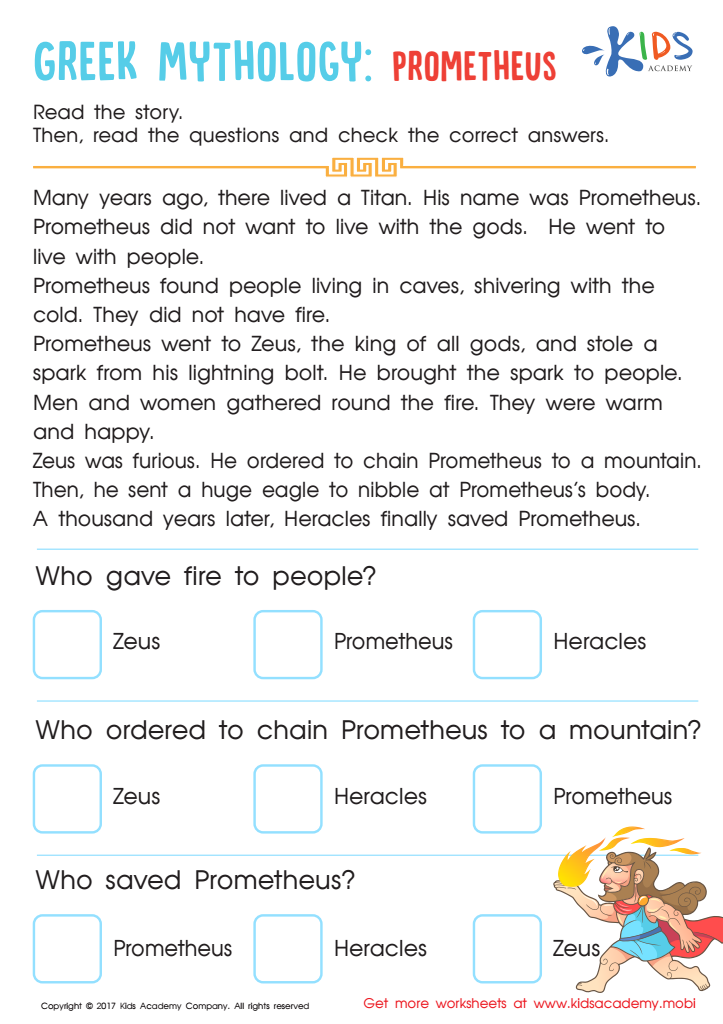

Prometheus Story Worksheet
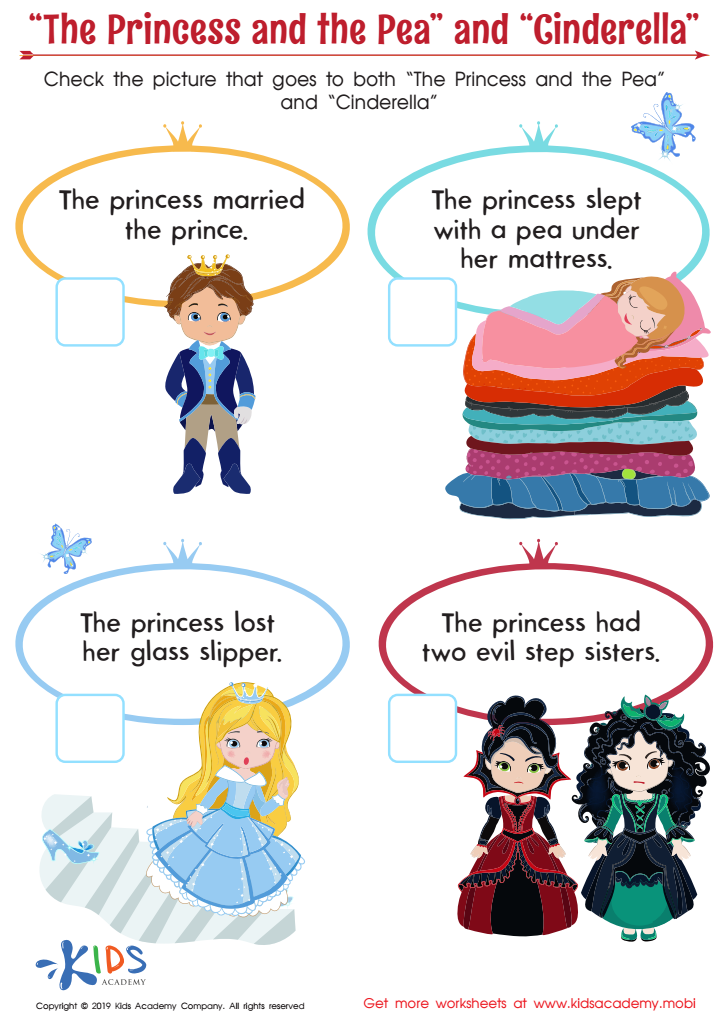

“The Princess and the Pea” and “Cinderella” Worksheet
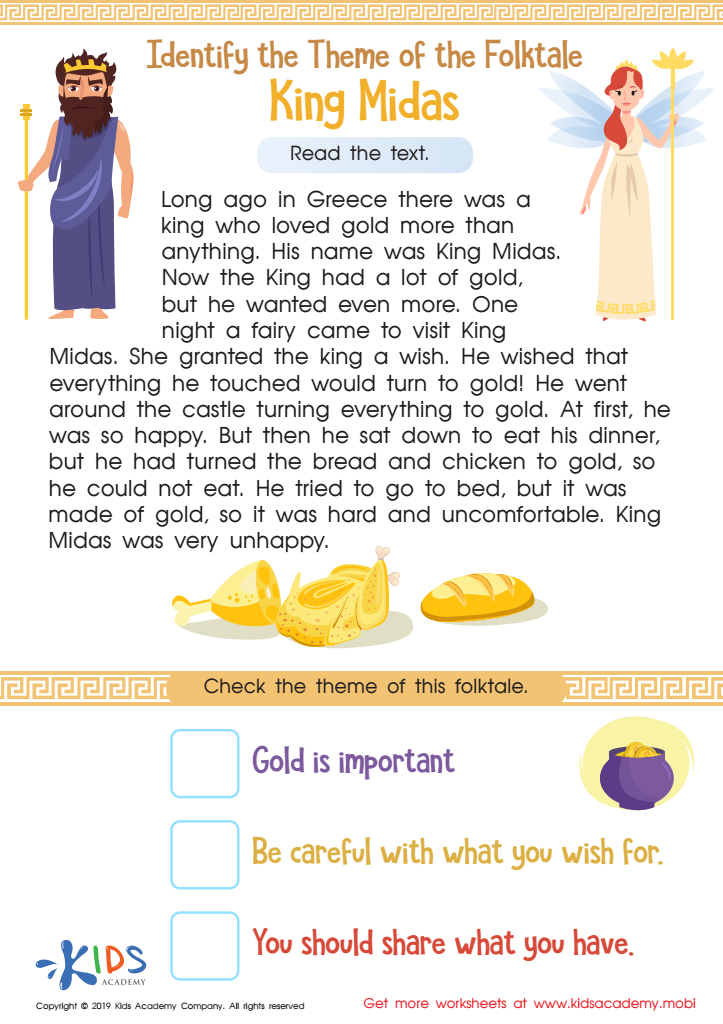

King Midas Worksheet
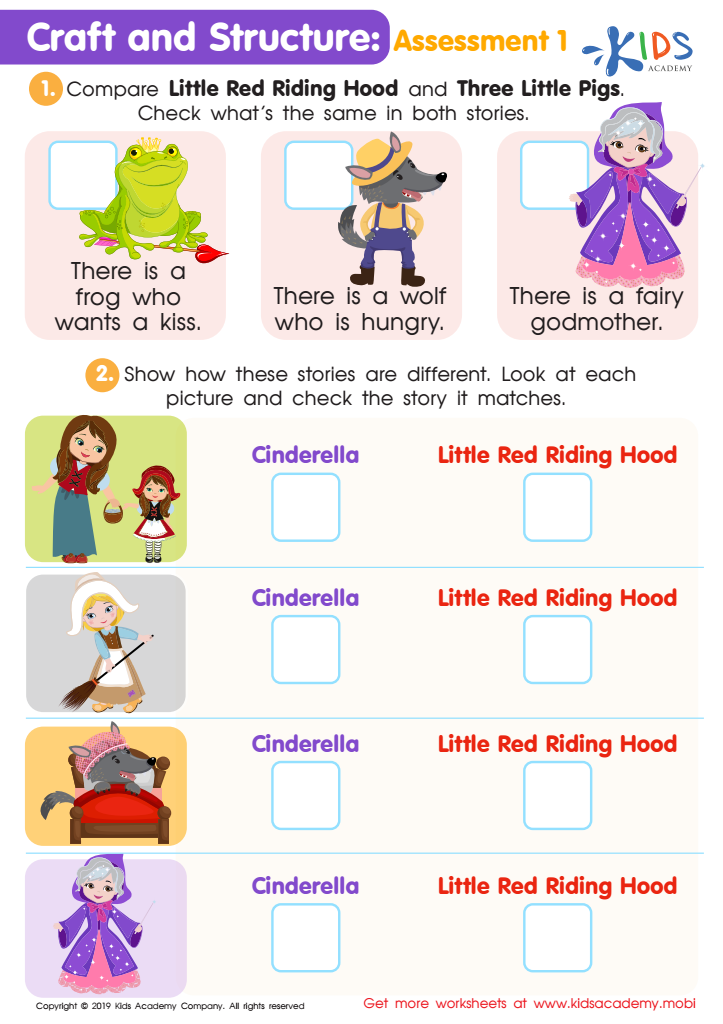

Craft and Structure: Assessment 1 Worksheet
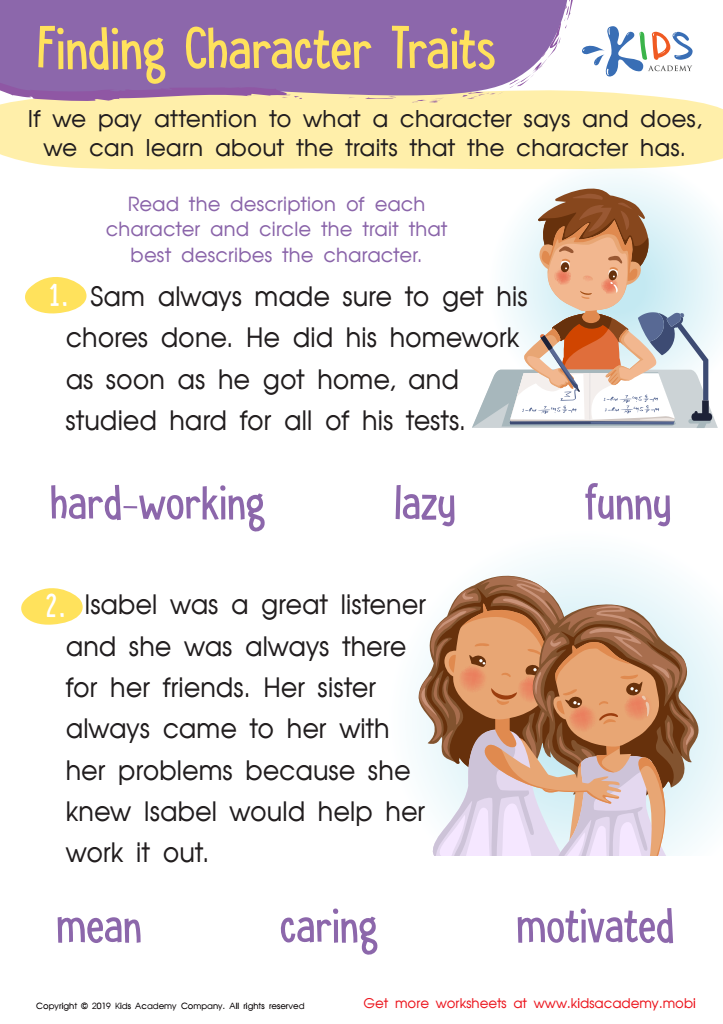

Finding Character Traits Worksheet
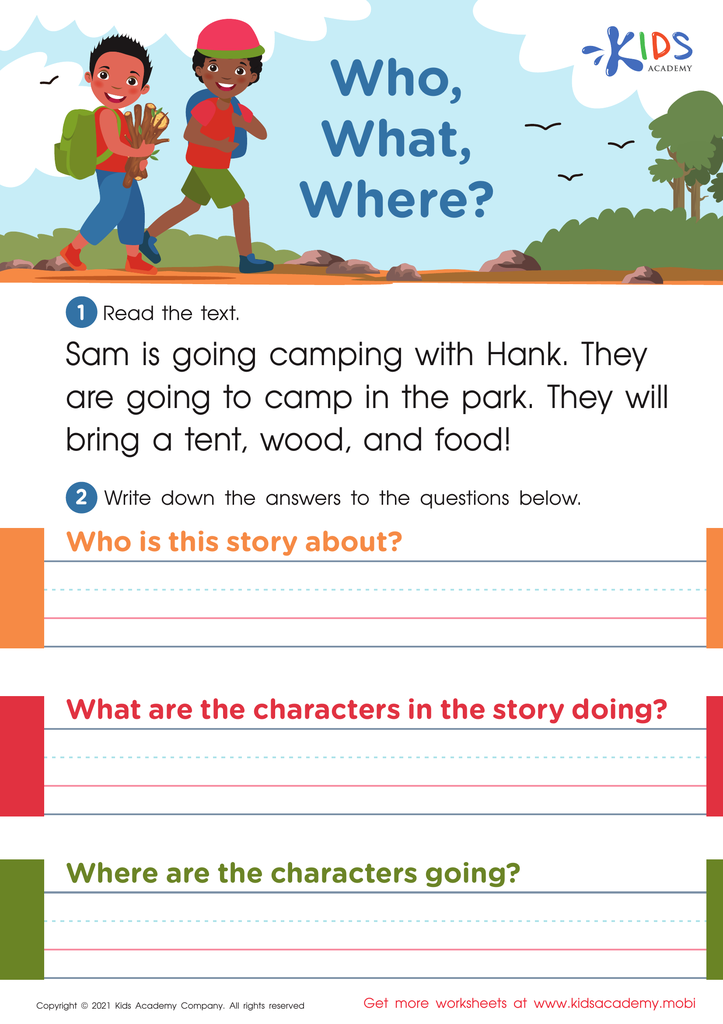

Who, What, Where? Worksheet
Vocabulary development in children aged 6-8 is crucial, as it lays the groundwork for effective communication, comprehension, and academic success. At this stage, children's minds are incredibly receptive, and exposure to rich, diverse language through reading fiction can significantly enhance their vocabulary. Engaging with stories not only introduces new words but also contextualizes them, helping children understand their meanings and usage in different situations.
Fiction stimulates imaginative thinking and emotional understanding, fostering empathy and critical thinking skills. When children encounter various characters and scenarios, they learn to express their thoughts and feelings, which contributes to their social development. Moreover, reading fiction can spark joy and a lifelong love for reading, which further amplifies vocabulary acquisition.
For parents and teachers, prioritizing vocabulary development through fiction reinforces literacy skills crucial for future learning. Strong vocabulary correlates with better comprehension in all subjects, improving academic performance. Additionally, it equips children with the language tools necessary for articulating their ideas clearly and confidently, which is essential in today’s communicative world. Therefore, by encouraging reading fiction, caregivers take an essential step in fostering holistic and language-rich learning experiences for children.
 Assign to My Students
Assign to My Students



.jpg)
.jpg)











